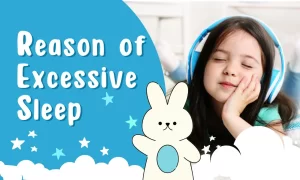Are you one of the many individuals who enjoy sipping on a mug of Sleepytime Tea before bed? This popular herbal blend is marketed as a natural relaxation aid, drawing on ingredients such as chamomile, spearmint, and lemongrass.
However, some individuals have reported experiencing nightmares after consuming Sleepytime Tea, leading to questions about its potential impact on sleep quality. In this article, we’ll explore the connection between Sleepytime Tea and nightmares, examining the scientific evidence, personal anecdotes, and popular beliefs surrounding this topic.
Join us as we delve into the potential connection between Sleepytime Tea and nightmares, and whether this popular bedtime beverage is a dream or a nightmare.
Understanding Sleepytime Tea
Sleepytime Tea is a popular herbal tea blend that is marketed as a relaxation aid to help individuals sleep better at night. The tea is created using a combination of soothing herbs such as chamomile, spearmint, lemongrass, and tilia flowers.
The purpose of Sleepytime Tea is to help individuals relax and unwind before bed. By drinking a warm cup of Sleepytime Tea, individuals may feel more at ease and experience a calmer state of mind, which can promote better sleep.
The tea is often described as having a pleasant taste and aroma that contributes to its overall calming effect.
Sleepytime Tea is widely available and can be found in most grocery stores and health food stores. It is typically packaged in tea bags, making it easy to brew and consume.
The Science Behind Dreams and Nightmares
Dreams and nightmares are a common part of the sleep cycle, with an normal person face three to six dreams per night. Dreams occur during the Rapid Eye Movement (REM) stage of sleep, which typically happens four to five times a night.
REM sleep is characterized by a surge in brain activity, increased heart rate, and changes in breathing. During this stage, the brain processes emotions, memories, and experiences, which can manifest as dreams or nightmares.
The Different Types of Dreams
Not all dreams are the same. Some dreams are enjoyable, while others are unsettling or downright frightening. There are four Important types of dreams:
- Normal dreams: These are the most common type of dream and involve a range of emotions and experiences.
- Nightmares: These are unpleasant dreams that can invoke feelings of fear, anxiety, or terror.
- Lucid dreams: These are dreams in which the dreamer is aware that they are dreaming and can often control the dream’s content.
- Recurring dreams: These are dreams that happen repeatedly, often with similar themes or circumstances.

The Science Behind Nightmares
Nightmares can be triggered by a variety of factors, such as stress, anxiety, trauma, or medications. They can also stem from an overactive imagination or an underlying medical condition.
When it comes to Sleepytime Tea and nightmares, there is no scientific proof to submit that the tea itself is responsible to produce them. However, the tea may be a contributing factor in some cases, depending on the individual’s susceptibility and other underlying factors.
It is important to note that nightmares are a common part of the sleep cycle and are not certainly typical of an basic problem. However, if nightmares are frequent, persistent, or severely impact daily life, it may be worth seeking advice from a healthcare professional.
The Role of Sleep Quality in Dreaming
While dreams and nightmares can be influenced by various external and internal factors, the quality of sleep is a crucial component. Poor or inadequate sleep can increase the likelihood of vivid and intense dreams, including nightmares.
Factors that affect sleep quality include stress, anxiety, medications, and substances such as caffeine or alcohol. Sleep disorders such as sleep apnea or restless leg syndrome can also impact sleep quality and potentially increase the frequency of nightmares.
When it comes to Sleepytime Tea, the relaxing effects of the herbal ingredients may improve sleep quality for some individuals, leading to a decrease in nightmares. On the other hand, if an individual has an adverse reaction to the ingredients or consumes the tea too close to bedtime, it could potentially disrupt their sleep and increase the likelihood of nightmares.
The Role of Sleep Hygiene
In addition to external and internal factors, sleep hygiene can also play a significant role in the quality of sleep and the occurrence of dreams and nightmares. Good sleep hygiene practices include maintaining a consistent sleep schedule, avoiding stimulants before bedtime, creating a comfortable sleep environment, and engaging in relaxation techniques such as meditation or breathing exercises.
By improving sleep hygiene and creating a conducive sleep environment, individuals may be able to reduce the occurrence of nightmares, regardless of whether they consume Sleepytime Tea or not.
Popular Beliefs Surrounding Sleepytime Tea
Many people who experience nightmares after drinking Sleepytime Tea believe that the tea is the culprit. While there is no solid proof to support this claim, personal story and recommendations have contributed to this belief.
Some individuals believe that the relaxing properties of the tea may have a paradoxical effect, triggering nightmares instead of promoting restful sleep. Others suggest that certain herbal ingredients in the tea could be responsible for the nightmares.
However, it’s important to note that personal susceptibility and individual circumstances may also play a role in the occurrence of nightmares. Factors such as pre-existing conditions, stress levels, and sleep quality may contribute to the onset of nightmares.
It’s essential to remember that individual experiences and beliefs may not necessarily reflect the general consensus or scientific evidence. While anecdotal evidence can provide valuable insights, it’s essential to approach such claims with caution.
The Relaxing Effects of Sleepytime Tea
Sleepytime Tea is a popular herbal tea blend marketed for its calming and relaxing properties. But what exactly makes this tea so soothing? And how does this relate to the potential connection between Sleepytime Tea and nightmares?
The Mechanisms Behind Relaxation
The calming effects of Sleepytime Tea can be attributed to the combination of herbs in the blend, including chamomile, spearmint, lemongrass, and tilia flowers. These herbs contain mixture that act on the body and mind to cause relaxation and minimize anxiety.
For example, chamomile contains apigenin, a flavonoid that binds to benzodiazepine receptors in the brain, similar to the way anti-anxiety drugs like Valium work. Spearmint and lemongrass contain menthol, which has been shown to have a quiet effect on the nervous system. Tilia flowers contain flavonoids and volatile oils that have relaxing properties.
Together, these ingredients work synergistically to encourage a state of relaxation, making Sleepytime Tea a favorite bedtime beverage for many people looking for a peaceful night’s sleep.
The Potential Link to Nightmares
While the relaxation induced by Sleepytime Tea could potentially reduce the occurrence of nightmares, some individuals have reported experiencing nightmares after drinking the tea. However, there is currently no scientific proof to support a direct causal link between Sleepytime Tea and nightmares.
It’s possible that other factors, such as pre-existing anxiety or stress, could contribute to nightmares experienced after drinking Sleepytime Tea. Additionally, some people may simply be more susceptible to nightmares regardless of what they consume before bed.
If you are concerned about the potential for nightmares after drinking Sleepytime Tea, it may be worth experimenting with other relaxation techniques to find what works best for you. This could include meditation, deep breathing exercises, or other calming teas without the ingredients found in Sleepytime Tea.
The Impact of Herbal Ingredients
Sleepytime Tea is a blend of various herbal ingredients, including chamomile, spearmint, lemongrass, and tilia flowers. These ingredients are known for their relaxing properties, making Sleepytime Tea a popular choice for individuals seeking a calming bedtime beverage.
The chamomile in Sleepytime Tea is believed to promote relaxation and reduce anxiety, which could theoretically help individuals fall asleep faster and sleep more soundly throughout the night. Spearmint has been shown to have a calming effect on the body, while lemongrass is many times used in aromatherapy for its stress-relieving benefits. Tilia flowers, also known as Linden flowers, have traditionally been used to encourage relaxation and minimize anxiety as well.
The Impact of Herbal Ingredients on Nightmares
While there is no concrete evidence that the herbal ingredients in Sleepytime Tea directly cause nightmares, some individuals may be more susceptible to negative side effects from certain herbs. For example, chamomile has been linked to an rise risk of vivid dreams or nightmares in some people, although the proof is limited. It’s unsure if this effect is due to an individual’s sensitivity to chamomile or other element.
Overall, the herbal ingredients in Sleepytime Tea are generally considered safe and beneficial for relaxation and sleep. However, it’s important to note that individual experiences may vary, and some people may be more sensitive or susceptible to negative side effects.
Studies and Research on Sleepytime Tea
To determine if Sleepytime Tea can genuinely cause nightmares, numerous studies have been conducted. However, most of these studies have been conducted on the individual ingredients in the tea, rather than on the tea itself.
One study published in the journal Phytotherapy Research found that chamomile, one of the primary ingredients in Sleepytime Tea, may have mild anxiolytic and hypnotic effects. However, the research did not find any proof of rise dream power or negative dream results.
Another study published in the Journal of Biological Rhythms found that valerian root, another ingredient in Sleepytime Tea, did not affect dream content or increase the frequency of nightmares.
Overall, there is limited research directly investigating the connection between Sleepytime Tea and nightmares. While some studies have investigated the individual ingredients in the tea, there is no definitive evidence that the tea itself can cause nightmares.
Possible Explanations for Nightmares
While some individuals may indeed experience nightmares after consuming Sleepytime Tea, there could be alternative explanations. Here are some possible contributing factors:
Personal Susceptibility
It’s essential to remember that individuals react differently to certain foods, drinks, and stimuli. Some people may be more susceptible to nightmares, while others may not be affected at all. Therefore, if you’re particularly prone to nightmares, it’s possible that Sleepytime Tea may exacerbate this issue.
Pre-existing Conditions
Individuals with certain psychological or health issues may be more prone to nightmares. Anxiety chaos, PTSD, depression, and other mental health situation may increase the likelihood of experiencing vivid and disturbing dreams. Additionally, certain medications or substances may cause nightmares or disrupt sleep patterns.
Sleep Environment and Quality
The environment in which you sleep can also influence the likelihood of experiencing nightmares. Factors such as sleeping in a noisy or uncomfortable setting, using electronics before bed, or consuming caffeine or alcohol may affect the quality of sleep and contribute to nightmares.
Overall, while Sleepytime Tea may potentially contribute to nightmares for some individuals, it’s essential to consider all possible factors that may influence dreaming and sleep quality. If you’re concerned about experiencing nightmares or believe that Sleepytime Tea may be causing them, it’s advisable to speak with a healthcare professional.
Personal Experiences and Testimonials
While scientific proof is crucial when determining the potential effect of Sleepytime Tea on nightmares, personal experiences and testimonials can also provide important insights.
Many individuals claim that drinking Sleepytime Tea before bed has caused them to experience vivid and unsettling dreams. Some have reported feeling restless and anxious, unable to fall back asleep after waking up from a nightmare.
One individual shared their experience on an online forum, stating, “I used to drink Sleepytime Tea every night before bed, but I stopped when I started having nightmares. I would wake up feeling nervous and worried, and it was act on my sleep quality.” Another individual shared a similar experience, stating, “After drinking Sleepytime Tea, I had the worst nightmares of my life. I felt afraid and couldn’t fall back asleep.”
While one’s own experiences should not be dismissed, it’s important to note that they cannot be generalized or applied to everyone. Many people drink Sleepytime Tea before bed without experiencing any side effects on their sleep or dreams.
If you are concerned about the potential impact of Sleepytime Tea and nightmare on your sleep, it may be helpful to keep a sleep diary and track any changes in your dreams or sleep quality after consuming the tea.
Tips for Reducing Nightmares
While some individuals may experience nightmares after drinking Sleepytime Tea, there are several tips and strategies that may help reduce their prevalence about Sleepytime Tea and nightmare. Here are a few:
- Avoid stimulating activities before bed: Engaging in stimulating activities such as watching TV or using electronic devices can make it difficult to fall asleep and may contribute to nightmares.
- Practice good sleep hygiene: Establish a regular sleep routine and create a relaxing sleep environment. This may include avoiding caffeine and alcohol before bed, using comfortable bedding, and reducing noise and light in the bedroom.
- Try relaxation techniques: Techniques such as deep breathing, meditation, or yoga may help reduce stress and promote relaxation before bed.
- Explore cognitive-behavioral therapy (CBT): CBT is a type of therapy that can help individuals identify and change negative thought patterns that may contribute to nightmares.
- Consider switching to a different type of tea: If you suspect Sleepytime Tea may be causing your nightmares, consider switching to a different type of herbal tea or a non-caffeinated beverage before bed.
By implementing these tips, you may be able to reduce the occurrence of nightmares and improve the quality of your sleep.
Conclusion
After search the potential connection between Sleepytime Tea and nightmares, it appears that there is no solid proof to support the popular belief that the tea causes nightmares. While personal experiences and anecdotes do exist, there are no current studies or research that directly link the two.
However, it’s important to note that individual sensitivity and pre-existing conditions can play a role in nightmares, and it’s possible that some people may experience nightmares after consuming Sleepytime Tea.
Regardless of whether or not Sleepytime Tea causes nightmares, encourage better sleep is pivotal for overall health and well-being. If you are experiencing nightmares or are worried about the potential impact of Sleepytime Tea, there are several tips and strategies you can implement to reduce nightmares and promote better sleep. These include:
Tip 1: Create a Relaxing Bedtime Routine
Establishing a relaxing bedtime routine can help promote better sleep and reduce the likelihood of nightmares. Think about incorporating activities such as reading, taking a warm bath, or practicing relaxation methods like deep breathing or meditation.
Tip 2: Limit Screen Time Before Bed
The blue light emitted from electronic devices can disturb the body’s natural sleep cycle and make it more difficult to fall asleep. Limiting screen time before bed can help minimize this disruption and minimize the likelihood of nightmares.
Tip 3: Avoid Stimulating Substances Before Bed
Caffeine, alcohol, and nicotine can all interfere with sleep quality and increase the likelihood of nightmares. Avoiding these substances before bed can help promote better sleep and reduce the chances of experiencing nightmares.
Tip 4: Seek Professional Help
If you are experiencing frequent nightmares or are concerned about the quality of your sleep, consider seeking help from a medical professional. They can provide guidance and support to help you overcome any underlying issues that may be impacting your sleep.
Overall, while there is no strong evidence to support the popular belief that Sleepytime Tea causes nightmares, promoting better sleep remains essential for overall health and well-being. Implementing these tips and strategies can help reduce nightmares and improve the quality of your sleep.
FAQ
Can drinking Sleepytime Tea cause nightmares?
There is no scientific evidence to suggest that Sleepytime Tea directly causes nightmares. Nightmares can be influenced by various factors, including personal susceptibility, sleep quality, and pre-existing conditions. While some individuals may report experiencing nightmares after consuming Sleepytime Tea, it is important to consider alternative explanations and individual differences.
What is Sleepytime Tea?
Sleepytime Tea is an herbal tea blend marketed as a relaxation aid. It typically contains ingredients such as chamomile, spearmint, lemongrass, and tilia flowers. The aim of Sleepytime Tea and nightmare is to encourage relaxation and better sleep.
How do dreams and nightmares relate to Sleepytime Tea?
Dreams and nightmares are natural occurrences during the sleep cycle, influenced by factors such as sleep quality, stress levels, and personal experiences. While some individuals may associate their nightmares with Sleepytime Tea, it is important to consider that dreams and nightmares can arise from a variety of sources and are not solely caused by the tea.
What is the effect of sleep quality on dreaming?
Sleep quality plays a significant role in dreaming. It depend on that individuals who experience more restful and steady sleep are more likely to have enjoyable dreams, while those with poor sleep quality may experience more disturbing or vivid nightmares. Sleepytime Tea is often select for its potential to help better sleep and relaxation, which indirectly may present to more positive dream experiences.
Why do some people believe Sleepytime Tea causes nightmares?
Some individuals may associate their nightmares with Sleepytime Tea based on personal experiences or anecdotal evidence. It is important to note that personal beliefs and experiences can vary, and while some people may believe the tea is responsible for their nightmares, the link between Sleepytime Tea and nightmares has not been scientifically proof.
How does Sleepytime Tea induce relaxation?
Sleepytime Tea contains various herbal ingredients known for their calming properties, such as chamomile and tilia flowers. These ingredients have been traditionally used to promote relaxation and reduce anxiety. The exact mechanisms by which Sleepytime Tea induces relaxation are not fully understood and may vary among individuals.
Are there any herbal ingredients in Sleepytime Tea that could trigger nightmares?
The herbal ingredients in Sleepytime Tea, such as chamomile and tilia flowers, are generally considered safe and not known to directly trigger nightmares. However, individual sensitivities and reactions can vary. If you suspect a specific ingredient may be causing your nightmares, it is recommended to consult with a healthcare professional.
What research has been conducted on Sleepytime Tea and nightmares?
Currently, there is limited scientific research specifically investigating the connection between Sleepytime Tea and nightmares. While there have been studies on the effects of herbal teas and sleep, none have focused solely on sleepytime Tea and nightmares impact. Therefore, more research is required to definitively determine if there is a causal relationship.
What are some alternative explanations for nightmares?
Nightmares can have various causes, including stress, trauma, medications, sleep disorders, and underlying mental health conditions. It is important to consider these factors and discuss any concerns with a healthcare professional to determine the potential causes of your nightmares.
What have others experienced with Sleepytime Tea and nightmares?
Personal experiences and testimonials vary widely. While some individuals may report experiencing nightmares after consuming Sleepytime Tea, others may not have any side effects. It is important to recognize that individual responses can vary and consult with a healthcare professional if you have specific concerns about your experiences.
Do you have any tips for reducing nightmares?
If you are experiencing frequent nightmares or are concerned about the potential impact of sleepytime Tea and nightmares, here are some tips that may help reduce nightmares: – Establish a consistent sleep schedule – Create a relaxing bedtime routine – Avoid consuming caffeine or heavy meals before bed – Manage stress through relaxation techniques – Create a comfortable sleep environment – Consider journaling or talking to a therapist about your dreams and nightmares.
Is it ok to drink sleepytime tea every night?
Yes, it’s generally okay to drink Sleepytime tea every night, as it’s caffeine-free and often contains calming herbs like chamomile. However, individual responses may vary, so monitor how it affects your sleep and consult a healthcare professional if you have concerns.
















